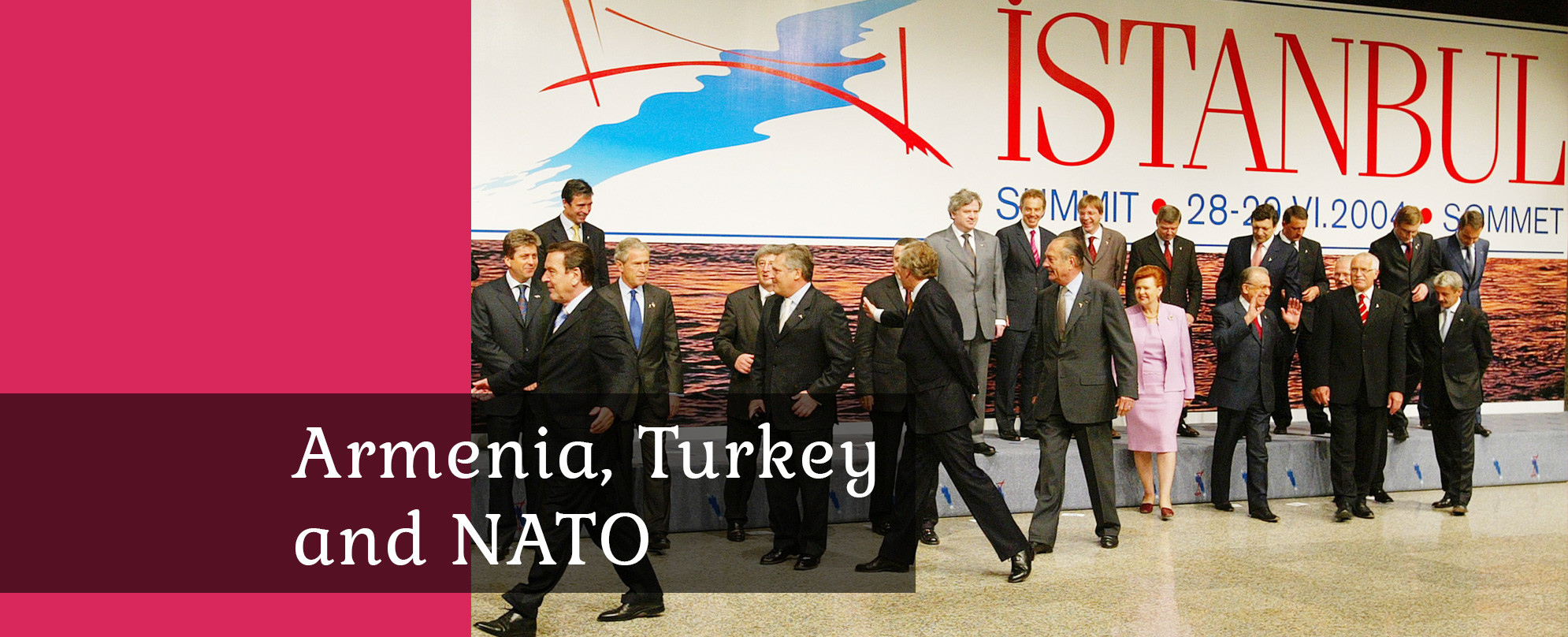
On May 10, 2004 Armenian president’s press secretary announced that Robert Kocharian would not take part in the Euro-Atlantic Partnership Council Summit in Istanbul. The reason of Robert Kocharian’s decision is the “current state of Armenian-Turkish relations.”
The Armenian president participated in the last two NATO and Euro-Atlantic Partnership Council (EAPC) summits in Washington and Prague. Robert Kocharian’s critics recalled that Armenian president not only took part in the Istanbul OSCE Summit in the autumn of 1999 but also met with Turkish President Suleyman Demirel. However, Armenia made a decision to take part in the OSCE summit in Turkey after the international community, primarily the United States, convinced Yerevan to abandon its intention to veto the decision to hold the summit in Istanbul.
The Americans managed to persuade Yerevan promising to influence Turkey thus making it change its position as regards the normalizing of relations with Armenia. The President of the United States, Bill Clinton, discussed this issue during his talks with Armenian and Turkish presidents in the corridors of the Istanbul OSCE Summit in 1999. Then, in reply to Mediamax’s question whether the USA can be called mediator between Armenia and Turkey Robert Kocharian said: “I think, yes. The United States has been trying to play this positive role for already several months.”

Over the 5 years that passed between the OSCE and NATO summits in Istanbul, the United States did make many efforts to achieve normalization of relations between Yerevan and Ankara. No tangible results were achieved. Against this background, Kocharian’s refusal to go to Istanbul could also be aimed at reminding the United States of its promises made five years ago.
On the other hand, Kocharian’s decision was dissonant with Armenia’s policy of rapprochement with NATO.
In March 2004, NATO Secretary General Jaap de Hoop Scheffer said:
“As seven partners turn into allies, our partnership policy will enter a new phase. A phase characterized by more individualized cooperation with partners and by a much stronger focus on cooperation with the Caucasus and Central Asia.”

On its part, Armenia took a number of important steps to get closer to NATO. Armenian ministers of foreign affairs and defense stated Yerevan’s intention to sign Individual Partnership Action Plan with NATO. Earlier in April 2004, Armenian Parliament ratified the multilateral PfP Status of Forces Agreement (PfP SOFA).
Some forces in Armenia and beyond claimed that Kocharian’s refusal to travel to Istanbul was due to “an unspoken order from Moscow.” However, Yerevan did not boycott the summit - the Armenian delegation to Istanbul was headed by Foreign Minister Vartan Oskanian.
There were speculations that another aspect of Kocharian’s decision was to draw NATO’s attention to the problem of Armenian-Turkish relations, although the alliance leaders consistently stated that they did not intend to act as a mediator between Yerevan and Ankara.
Back in January 2001, NATO Secretary General George Robertson told Mediamax:
“NATO doesn’t see itself as having a role in arbitrating the normalization of Armenian-Turkish relations. We can’t control the foreign policy of our member-states. Besides, it’s practically unreal. For instance, how can I tell Condoleeza Rise how U.S. should develop its relations with Northern Korea or India?!It would be indecent and useless on my part.”

In the early 2000s, Armenian diplomats said in private talks that they intentionally use the “Turkish factor” as a lever at the talks with NATO, making emphasis on the fact that the absence of diplomatic relations with Turkey negatively affected the Alliance’s image in Armenia. It is difficult to say what results could have been achieved by such policy but it is obvious that later Yerevan adhered to another tactics - to demonstrate readiness to take part in every NATO-led events which are in one way or another connected with Turkey or Azerbaijan, thus pushing forward the idea about the necessity to start regional cooperation in the South Caucasus.
This is how one could interpret the statement by the Chief of General Staff of the Armed Forces of the Republic of Armenia Colonel General Mikhail Harutiunian made at the EAPC Military Committee Chief of Defense Meeting in Brussels on 5 May 2004.
“The Armenian side does not share the opinion that the regional cooperation in the South Caucasus within the framework of NATO’s PfP program is doomed to failure. Armenia is trying to establish contacts with representatives of neighboring states within regional military cooperation programs, in order to ease the tension and to contribute to the creation of favorable environment for the settlement of conflicts.”

It is worth mentioning that Mikhail Harutiunian became the first Armenian top military official to visit Istanbul in November 2003 - he arrived there on the invitation of Commander-in-Chief North Europe and took part in the NATO Allied Action 2003 Exercise Distinguished Visitors Day.
Despite the criticism, Robert Kocharyan’s refusal to attend the EAPC summit in Istanbul did not affect Armenia’s relations with NATO - a year later, in June 2005, Armenian Defense Minister Serzh Sargsyan handed over to the NATO Secretary General a presentation document of Armenia’s Individual Partnership Plan with the Alliance.
Ara Tadevosyan
Photos from REUTERS and Sputnik Armenia archives were used in this chapter.



